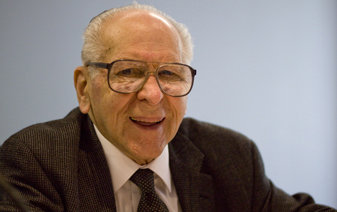Background/context
Western views = changes in treatments are a result of increasing understanding, and we now accept that mental illness exists, but there is more research to be done
Szasz's view is that there is no such thing as mental illness and "disease only means bodily disease" and his writings debate over whether illness must refer to bodily disease
Myth of mental illness, it should just be seen as behaviours that disturb others
Proposal that mental patients should be seen as active players in real life dramas, not victims of processes out of their control
Method
The article critiqued changes in beliefs and concepts about mental health and changes in USA healthcare since the 60's, it is not a study since it didn't include a procedure nor participants
The article has 4 sections
1- 50 years of change in US mental healthcare
2- mental illness, medical or legal?
3- mental illness as a metaphor
4- revisiting his book, 'myth of mental illness'
Findings
1- 50 years of change in US mental healthcare
In the 50's szasz said that the responsibility of US healthcare should be up to the federal government
Mental patients were considered incurable, confined and cared for by physicians paid by the government
Non-psychiatric physicians in the private sector treated patients, paid by clients or their families
Since then, all mental healthcare is run by the government and paid for by public money
Mental health professionals are now responsible for preventing their patients from causing danger to themselves or others
2- Mental illness, medical or legal?
Old 'diseases' like homosexuality disappear and new ones like ADHD appear
Mental illness has been decided to be a disease like physical ones that can be treated medically
Szasz says that the claim that mental illness is a diagnosable disorder of the brain is not scientific, it is an error and a deception, a metaphor
He thinks mental hospitals are like prisons
3- Mental illness as a metaphor
The idea that mental illness isn't a medical problem is not popular, Szasz says the physician who concludes a person who has a mental illness suffers from a brain disease, discovers that the person was diagnosed and actually had a bodily illness
Szasz argues that if all the conditions called mental illnesses proved to be brain diseases, there would be no need for "mental illness"
He says that the old perspective on the tragic nature of life has been replaced with a dehumanised one
Szasz uses Macbeth as an illustration, he was overcome with guilt, Lady Macbeth "goes mad" and the doctor says he cannot cure her, she needs to minister herself meaning she needs to work out her internal mental issues out herself
He says behaviour labelled as mental disorder is the product of medicalisation of disturbing behaviours
Individuals with bodily illnesses are not deprived of liberty, but mentally ill patients can be deprived of freedom which is the violation of human rights
Diagnoses are in the hands of licensed physicians, so technically mental illness is in the eye of the beholder
4- Revising the Myth of Mental Illness
Many critics misread his book, according to Szasz, they apparently overlook the fact that it was meant to be an effort to recast mental illness from a medical problem to a linguistic-rhetorical phenomenon
Most sympathetic appraisals of his text have come from physicians who do not feel threatened by his opinions
Critics of psychiatry, journalists and the public regularly fail to distinguish between counselling clients and coercing captives of the psychiatric system
He also believes people should be able to decide if they want to live or not
Conclusions
Mental illness is in the eye of the beholder
Mental illness is a metaphor
Psychiatry is a pseudo science
It is now a legal concept, not a medical one
"mentally ill" people should have rights and liberties to define and control their own lives
Evaluation
Ethics- it doesn't collect data from p's, so no ethical issues but it is socially sensitive and controversial because it could be distressing for mentally ill people to be told their 'illness' is a myth
